I have project that depends on commons-httpclient [2.0] (compile).
I would like to write some jbehave tests - jbehave-core 3.4.5 (test). Both this dependencies depend on commons-lang but in different versions - 1.0.1 and 2.5.

When I execute mvn package I get [BUID FAILURE] in tests section. There is an exception for my testcase in surefire-plugin output:
java.lang.NoSuchMethodError: org.apache.commons.lang.StringUtils.substringBeforeLast(Ljava/lang/String;Ljava/lang/String;)Ljava/lang/String;
As I looked in source code - in commons-lang 1.0.1 - indeed, there is no StringUtils.substringBeforeLast(...) method. Why maven uses commons-lang from commons-httpclient (compile) and not from jbehave-core in testing?
I can't afford to exclude this conflicting dependency in commons-httpclient so it must stay in compile time.
So how can this be resolved - commons-lang 2.5 version in testing and 1.0.1 in compile time?